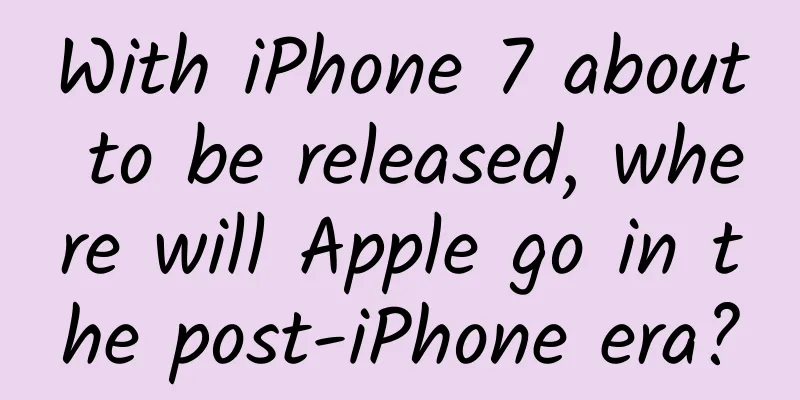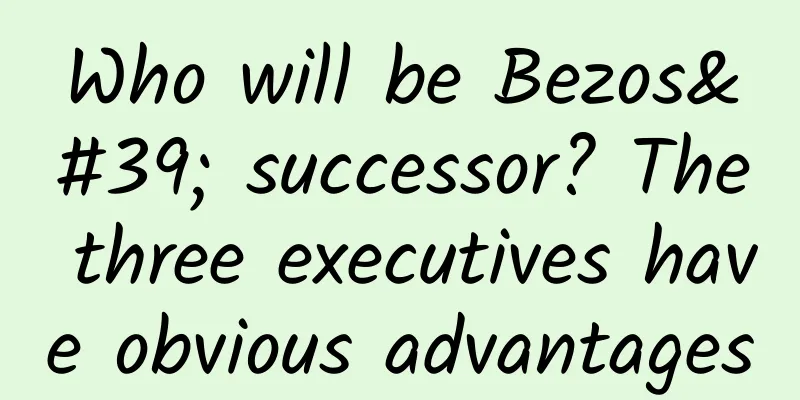With iPhone 7 about to be released, where will Apple go in the post-iPhone era?

|
All good things must come to an end. At least since Steve Jobs launched the iTunes store that made the iPod a hit in 2003, Apple’s new product launches have been the talk of the town. They showcase not only some of the most tantalizing consumer technology but also offer a glimpse into the bright digital future that Jobs always promised would be “incredibly bright.” Apple after the iPhone It’s hard to generate that kind of excitement about the upcoming release of the latest iPhone. Since there are unlikely to be any fundamental changes, the focus will be on add-ons like the dual-lens camera and wireless earbuds. There is no doubt that the latest iPhone upgrade will reaffirm that the iPhone is the most advanced product. But after nine years, the wow factor is wearing off. BMW didn’t stop the world in its tracks by slapping cool new gadgets on its cars. And because the new iPhone does little to convince most consumers to upgrade to the latest model, it is not expected to do much to boost iPhone sales, which have been falling this year. That this fatigue comes as Tim Cook marks five years since he took over as Apple’s chief executive is tempting to see it as a momentous occasion for Apple, a sign that the company sorely lacks the product genius of Mr Jobs. Mr Cook does face a very unique conundrum. Last year, iPhone sales reached $155bn, slightly more than the total revenue of General Motors. Has any personal technology product ever come close to that? But this ignores a more profound problem. The iPhone is expected to undergo even greater changes next year, even as the market matures and a stronger phone replacement cycle is approaching. More importantly, people's focus on slowing iPhone sales ignores the greater opportunity before Cook. The key statistic is not the number of new devices shipped, but the number and purchasing power of people living in Apple's world. This year, Apple has become accustomed to talking about the 1 billion phones, tablets and Macs the company has sold and actively used. If you take into account that a user may have multiple devices, it is estimated that this means 600 million to 700 million users. This is one of the most coveted consumer groups in the world: a high-end elite group with high disposable income and high brand loyalty, spread all over the world. The challenge facing Apple is to tie them more closely to Apple's digital ecosystem and find more ways to convert these users' attention into commercial benefits. Jobs' final public appearance at a new product launch just months before his death showed that things were changing. iCloud may not have generated the same excitement as Apple's hardware, but Jobs described it as a turning point in the way people interact with digital devices. Each device will directly connect people to their personal data and media stored in the cloud, which in turn will tie users more closely to the Apple ecosystem. Machine learning is the next battleground in the tech industry. If Apple succeeds in making all of its products “smarter” — products that understand you and help you navigate the digital world — it will be a step closer to creating digital dependency. Cook also needs to find more ways to make money beyond the iPhone. Expanding sales of digital content and services has long been an underexploited opportunity. As Apple devices become the gateway to more media and business activity, it could become a significant and high-margin revenue stream. Apple’s first attempt to draw attention to its services revenue earlier this year was a public relations disaster: Wall Street saw it as an attempt to distract from the iPhone’s waning momentum. But services have become Apple’s second-largest revenue source. Likewise, rather than one new blockbuster product to rival the iPhone, the Apple world will rely on an evolving constellation of devices and accessories, some of which will have the potential to contribute more revenue to the business, but all of which will play a role. Tim Cook's first five years can be seen as the five years of realizing the immediate potential of Jobs' breakthrough products - iPhone sales more than tripled during this period, and he also turned Apple from Jobs' pirate ship into a large enterprise. His next five years will be the ones that show Apple can master many new tricks and ways to make money. Given its huge sales, the iPhone will remain at the center of the market for years to come. But there is still a lot of work to be done to fully realize the potential that Jobs's magic phone has unleashed. Cook must eventually surpass Jobs' legacy At the end of every Apple board meeting, chief executive Tim Cook raises the question of who will take over if he “dies or something”. It is a credit to him that after five years at the helm of the world’s most valuable company, Mr Cook is more likely to leave because of unhappy investors than in an accident. Cook assumed the role of Apple CEO in August 2011 under tragic and extremely difficult circumstances: Apple co-founder and genius mentor Steve Jobs was nearing death. As Cook pointed out in an interview with the Washington Post, Jobs was impossible to emulate. “It would be a very dangerous thing for me to try to do,” Cook said. That impossibility was evident in the way Mr. Cook was sometimes judged during his first five years in office: He was seen as a mild disappointment. He oversaw the launch of the Apple Watch and Apple Pay, but neither of them created the same kind of buzz as the wildly successful iPhone, which now accounts for nearly 70% of Apple’s revenue. It’s fairer to view his tenure from another perspective: Apple has not only stabilized but grown, and Mr. Cook has largely kept senior talent in place. He has prevented Apple from taking sharp turns and has managed to grow and broaden its product line, unlike other successors to charismatic and powerful founders — including John Sculley when Apple ousted Mr. Jobs in the mid-1980s. Before Jobs' death, Cook was known as an operations expert, the one who made sure Apple's global business and manufacturing network ran smoothly, allowing Jobs to focus on new, breakthrough products. Since Jobs' death, Cook has applied his analytical mind to Apple, making sure that size and complexity wouldn't get in the way of Apple's continued growth. There are many things that can go wrong in any business, especially a very large one. This explains the problem of ever-shortening CEO tenures. Under pressure from consumers, shareholders and regulators, it’s easy to make strategic mistakes or to lose sight of what makes a business great. Simply avoiding these pitfalls for five years is an achievement in itself. Cook has also made his personal presence felt. He has resisted pressure from short-term shareholders to return more of Apple's $232 billion in cash and the perception that his job is to serve only the interests of shareholders rather than consumers and society at large. He has taken strong and helpful stances on social issues -- including announcing that he is gay. But this is just the first step for Cook. To stay at Apple for a decade, he must do more than exploit the iPhone’s potential in new markets: He must launch surprising products of his own. So far, the Apple Watch and Apple’s services like iCloud and the App Store have failed to do that — despite the App Store’s huge financial growth. It’s a formidable challenge. As Cook once said, Apple’s historical specialty is launching “incredibly great products that really change the world in some way,” combining hardware, software, and services. Its recent effort to build an Apple TV has fizzled, and it’s still unclear whether Apple wants to build its own cars or just make software for other brands’ cars. Cook is a close friend of Jobs and has a deep-seated sense of Apple's quality. Perhaps only Apple's chief design officer, Sir Jonathan Ive, understands the products that make Apple great better than he does. In his five years at the helm of Apple, Cook has remained true to Jobs' legacy. Ultimately, he must transcend that legacy. As a winner of Toutiao's Qingyun Plan and Baijiahao's Bai+ Plan, the 2019 Baidu Digital Author of the Year, the Baijiahao's Most Popular Author in the Technology Field, the 2019 Sogou Technology and Culture Author, and the 2021 Baijiahao Quarterly Influential Creator, he has won many awards, including the 2013 Sohu Best Industry Media Person, the 2015 China New Media Entrepreneurship Competition Beijing Third Place, the 2015 Guangmang Experience Award, the 2015 China New Media Entrepreneurship Competition Finals Third Place, and the 2018 Baidu Dynamic Annual Powerful Celebrity. |
Recommend
I thought the painless and itchy patches on my body were just a minor illness, but it turned out to be skin cancer...
Recently, an elderly male patient came to the der...
Huawei launches new brand Qiankun to kick off the first year of large-scale commercial use of intelligent driving
[Beijing, China, April 24, 2024] On the eve of th...
Deep within the Earth, there are the remains of an ancient planet
I believe many people have heard such a story. Ab...
What are the optimization tips for Toutiao information flow ads? Here is the methodology!
There is too little exposure, why is there no sal...
Case analysis | Lagou Education’s Double 12 1-yuan flash sale
From the perspective of the historical context, t...
Manual for identifying “high-quality imitation” edible fungi | Do you know about these high-risk “health foods”?
From the New Year's Eve dinner to the reunion...
Summary of common questions when purchasing Alibaba Cloud servers!
Customer: How can I find you to purchase on my be...
Can the "strong carcinogen" formaldehyde really be stopped from the source? Scientists give a new answer
One C, two H and one O, through chemical reaction...
The body accumulates mutations throughout life. Could this be the cause of aging?
Imagine your body, a mosaic of cells with thousan...
LOL! This ant is so good at acting when it is slightly injured, just to let its teammates carry it home...
If someone is injured or sick, they have to go to...
User operation: How to accurately operate push?
By actively pushing messages to users' mobile...
Six ways to use group analysis in life and mobile game operations
[[148080]] The grouping and classification remind...
The two-sided life of a marmot: From the cutest supporting character in "Nezha 2" to a scientific research star in the laboratory
"Nezha 2" created a movie box office my...
How much does it cost to customize a fitness app in Zaozhuang?
How much is the quote for customized fitness in Z...
Baofeng TV's model of achieving profitability within 5 years is questionable
Shenzhen Baofeng Tongshuai Technology Co., Ltd. (...









